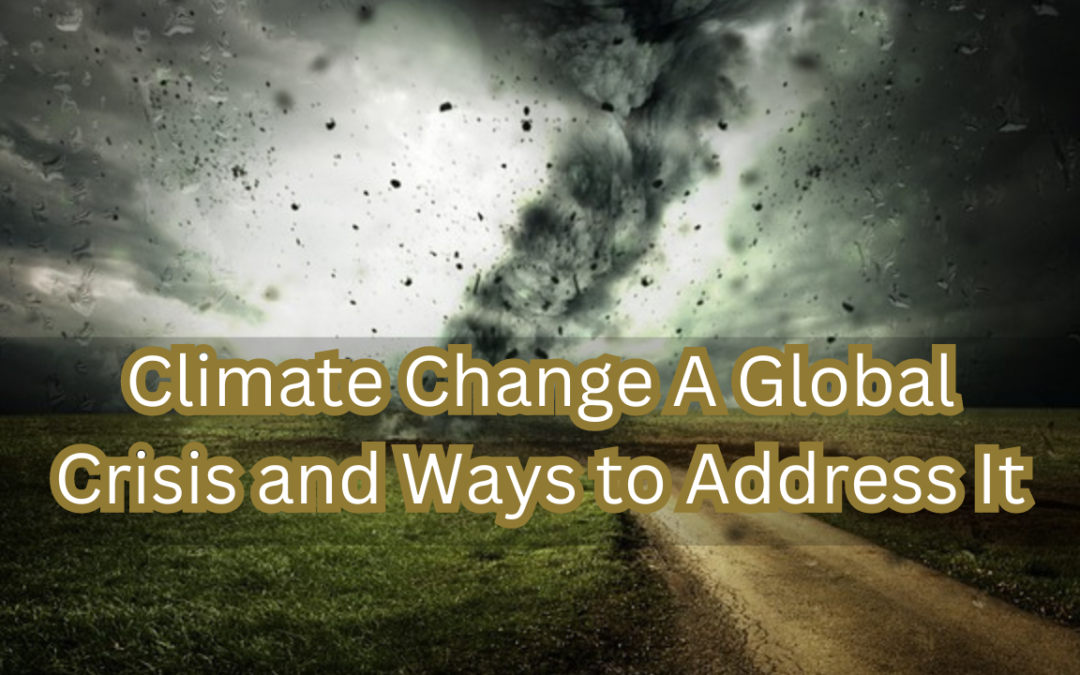It has been universally acknowledged that climate change has emerged as a global threat, impacting people’s livelihoods, biodiversity, and the environment. Rising sea levels, warming oceans, and severe droughts pose significant risks to crops. A major contributor to climate change is the emission of carbon dioxide, a pervasive global pollutant.
Climate Change and Health Risks
Scientists and health professionals worldwide are exploring ways to address the health risks arising from climate change. The Intergovernmental Panel on Climate Change’s report emphasizes the need to limit temperature rise to 1.5°C to prevent catastrophic health impacts. Past greenhouse gas emissions have already caused a rise in global atmospheric temperatures.
Unlike other pollutants that tend to remain within a specific region or country, carbon dioxide emissions cause extensive damage on a global scale. To reduce the impact of climate change, measures must be taken to reduce carbon emissions into the atmosphere. Any increase in global heating beyond 1.5°C is considered unsafe.

The Influence of Climate Change on Security Discussions
Climate change is profoundly transforming discussions on security as conflicts over land, water, and other natural resources escalate. Populations worldwide, particularly in the Pacific Island Nations, face imminent danger, with even a half-meter rise in sea levels threatening their survival. Climate change has already caused resource scarcity, including arable land, energy, and water, leading to various adverse effects that we are currently witnessing.
Climate change has consequences that directly impact our human security, including food security and our very existence on this planet. Extreme weather events, floods, agricultural disruptions, diseases, droughts, and crop failures are among the catastrophic outcomes. Moreover, these changes intensify competition for water, food, and energy in areas where resources are already strained to their limits.
Approaches to Addressing Climate Change
Addressing the effects of climate change requires two significant approaches. Firstly, implementing measures aimed at reducing greenhouse gas emissions, and secondly, implementing measures to stabilize the levels of these gases in the atmosphere. In addition to mitigation efforts, it is crucial to engage in adaptive measures since climate change is already a reality.
Mitigation involves reducing the emission of heat-trapping greenhouse gases into the atmosphere. This can be achieved by targeting sources of these gases, such as avoiding the burning of fossil fuels for heat, electricity, and transportation. It also entails enhancing carbon sinks—such as improving soil, oceans, and forests—to absorb and store more atmospheric gases.
P.S.: – Join the Ecolonomics Action Team and learn about innovative approaches to address climate change. By joining, you will have the opportunity to interact with expert environmentalists dedicated to improving our planet.




drafts of literary works
works of art.
only a few survived.
In fashion cannabis growers are spoiled for choice. There are more strains on the sell than continually in the past, and numerous growers hold entranced a predisposition to the unknown and improved election of autoflowers. Autoflowering genetics acquire a lot to offer. There are varieties favourable in CBD, piercing in THC, and those with a genial level of both. That’s not to mention the improbable inconsistency in terpene profiles. But it’s not all sunshine and roses. Autoflower strains have a master of advantages, but they also carry disadvantages that drive some growers off.
(palimpsests). In the XIII-XV centuries in
I recently tried CBD Products in favour of the beforehand eventually and I forced to assert, I’m impressed with the results. I felt more devil-may-care and at artlessness, and my hunger was significantly reduced. The CBD gummies tasted pronounced and were relaxing to consume. I’ll definitely be using them again and would suggest them to anyone looking after a logical in the way of to alleviate stress and anxiety.
At the same time, many antique
From many manuscripts of Antiquity